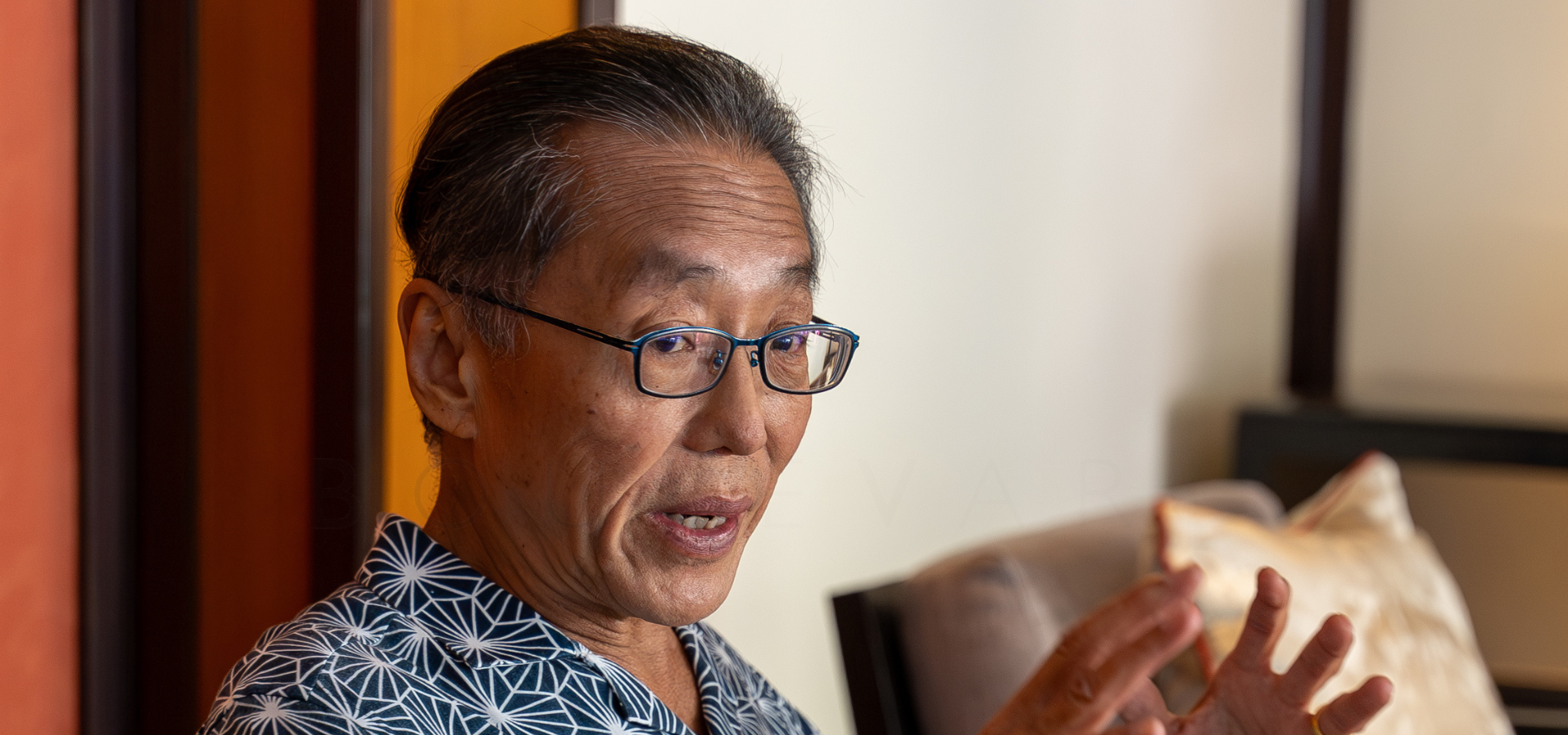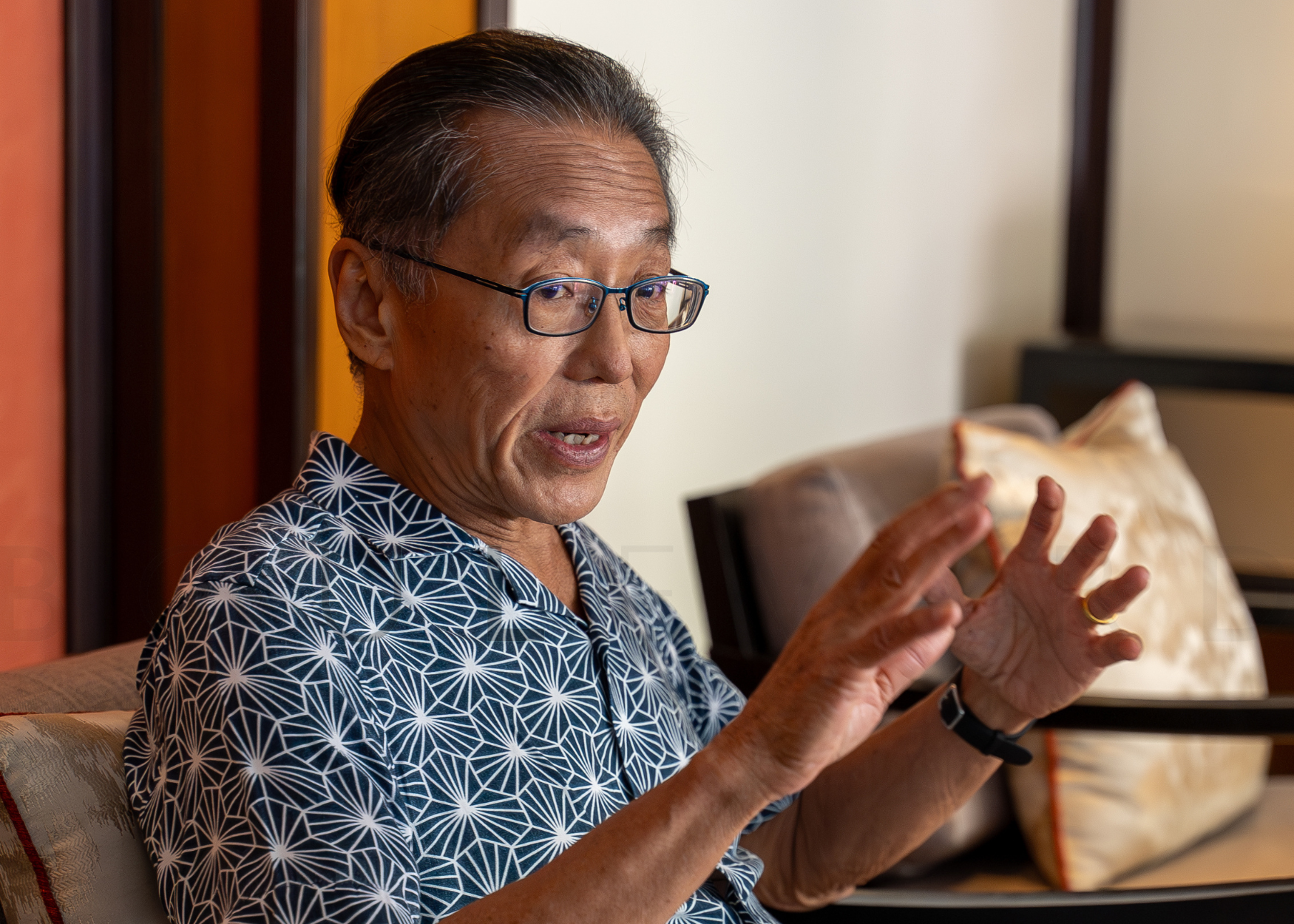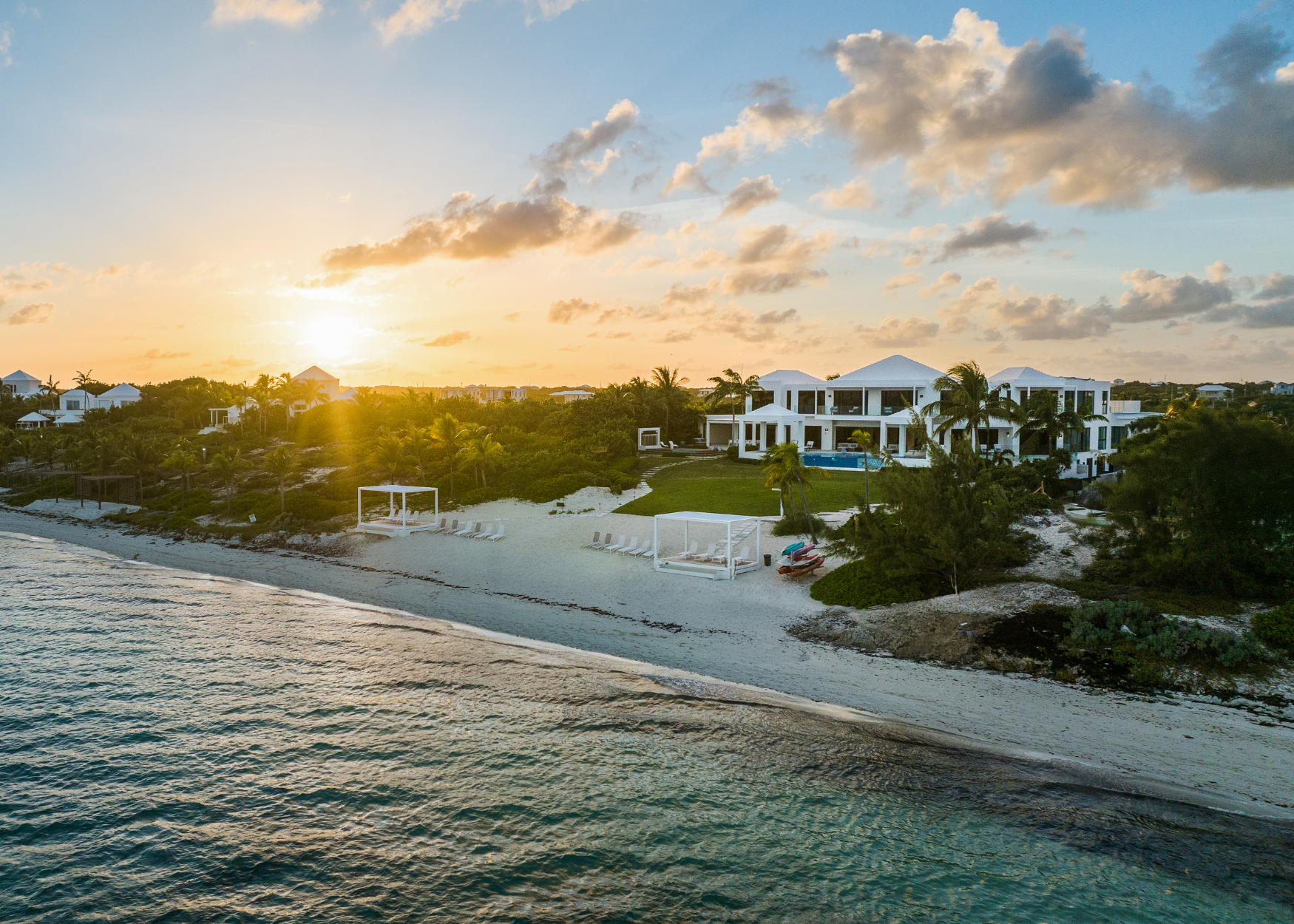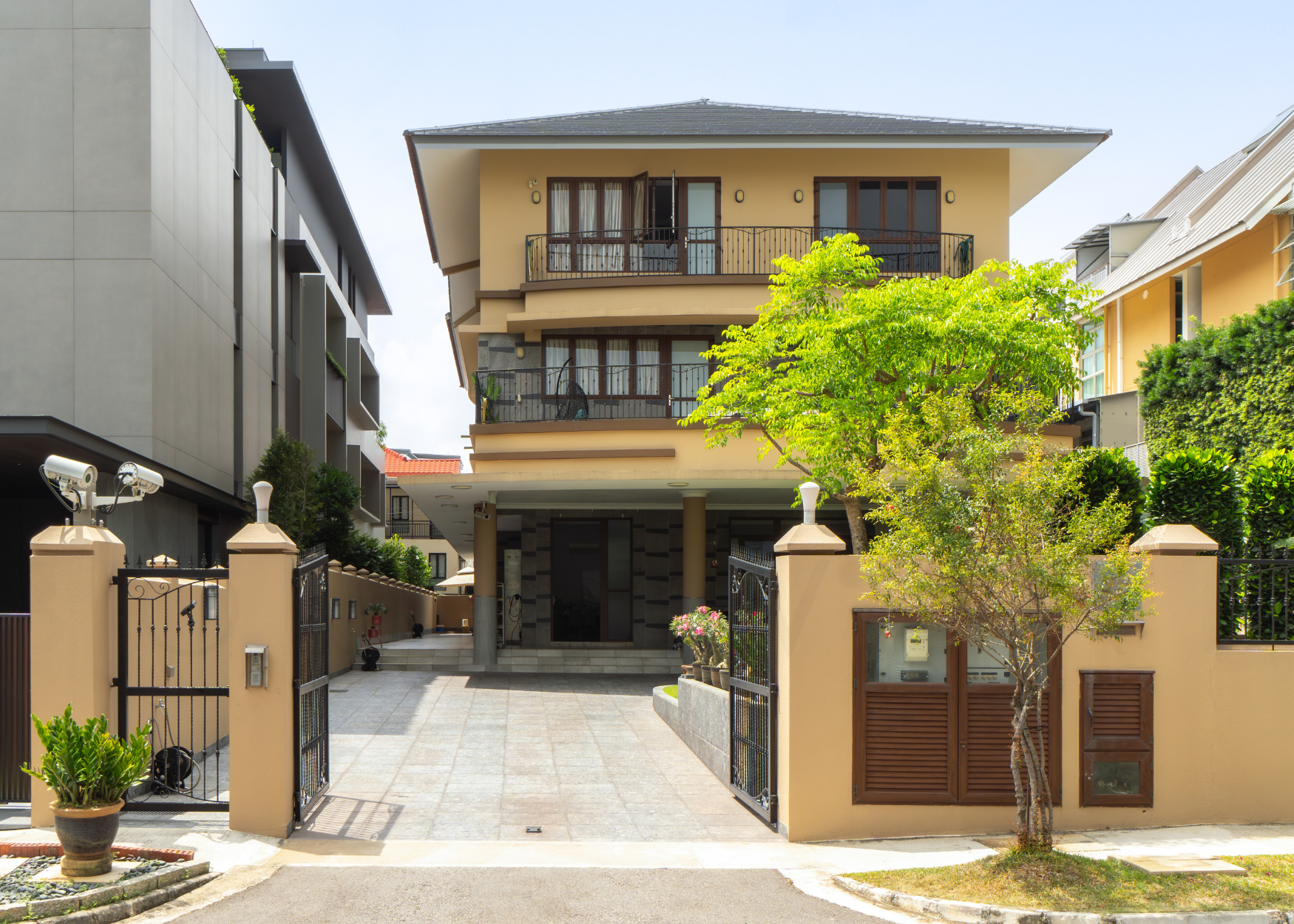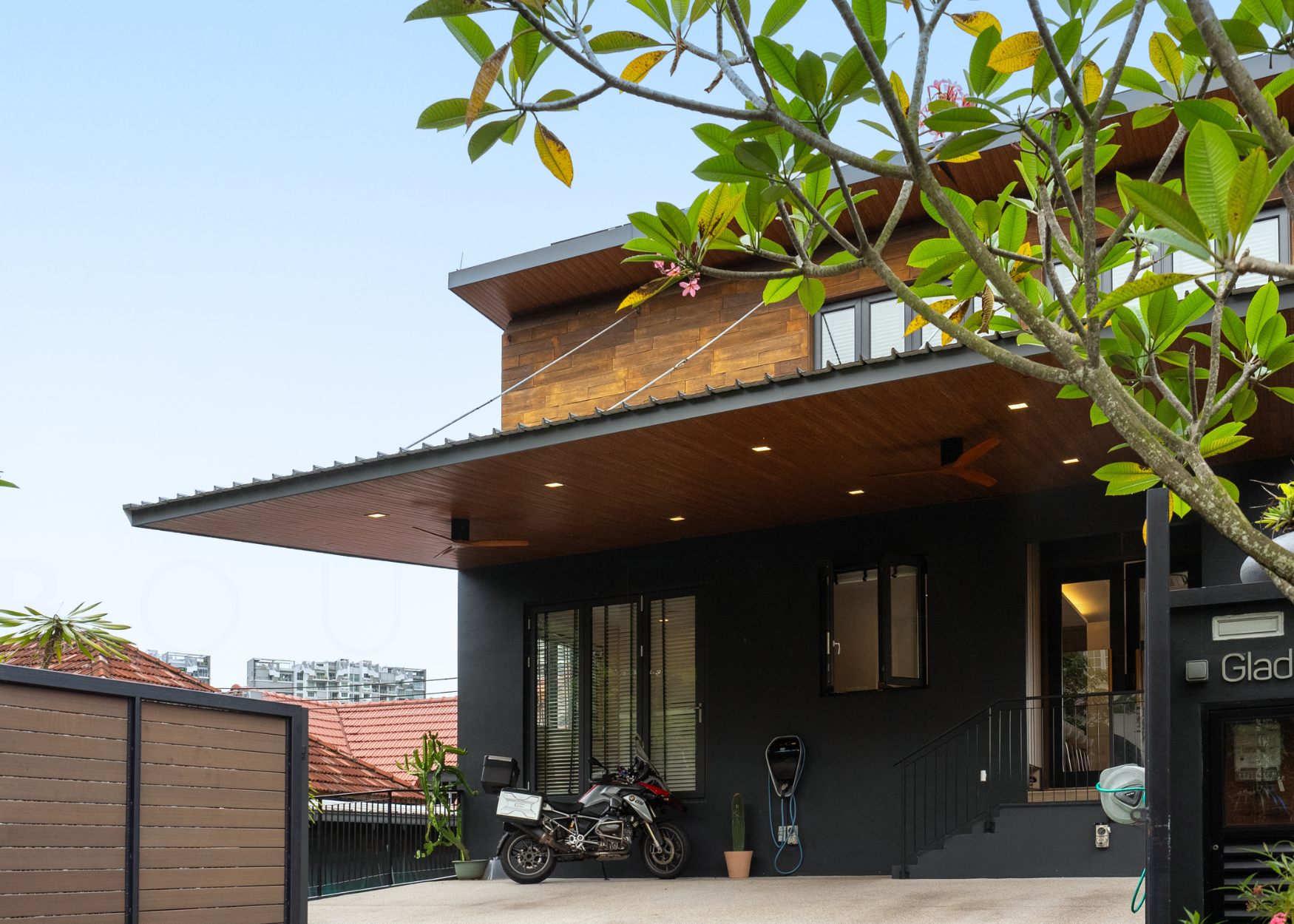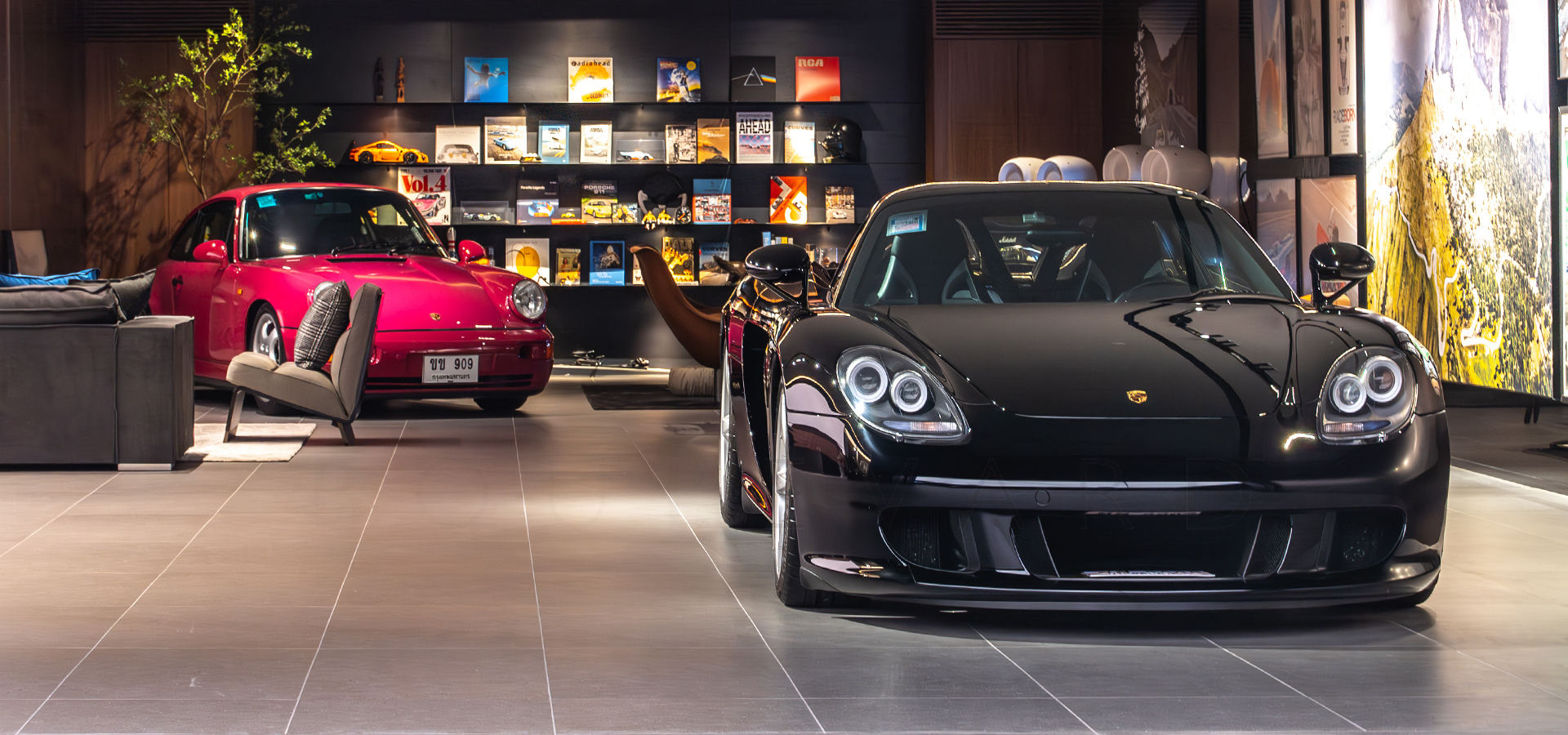The interview: K. P. Ho, founder of Banyan Tree Group, on three decades of luxury hospitality
by Hamish McDougall
Photography by Jin Cheng Wong
Banyan Tree Group founder K.P. Ho talks us through three decades of differentiated luxury hospitality, the bright future of branded residences, and crashing drones into his latest prestige developments.
Boulevard: In the increasingly crowded space of luxury hospitality, how is the Banyan Tree brand differentiated?
K.P. Ho: We started out as the pioneers in pool villas, so now after 30 years, when anybody thinks about pool villas in a tropical resort setting, I think we are almost top of mind. And when they think about tropical spas, we’re top of mind. So this here [the Double Pool Villa at Banyan Tree Residences Phuket] is what I would call a ‘run of the mill’ pool villa.
Blvd: It’s a pretty indulgent take on ‘run of the mill’.
Ho: Well, yes, I mean, we can do these with our eyes closed. But at the same time, we’re going into city hotels. So, one of the things we’ve recognised as the brand has grown, is that there is the bread-and-butter type of product, with which we’re synonymous, but there’s a need to re-energise the brand. We came up with a 16 villa property in Ubud, with the tagline, ‘no doors, no walls’. And they’re charging US$1,500 a night for no doors, no walls. It’s won more awards than any of our other Banyan Trees over the last two or three years. It’s not a game changer for us because it doesn’t have that many keys, but it is a game changer in terms of keeping the brand a little bit edgy, a little bit innovative.
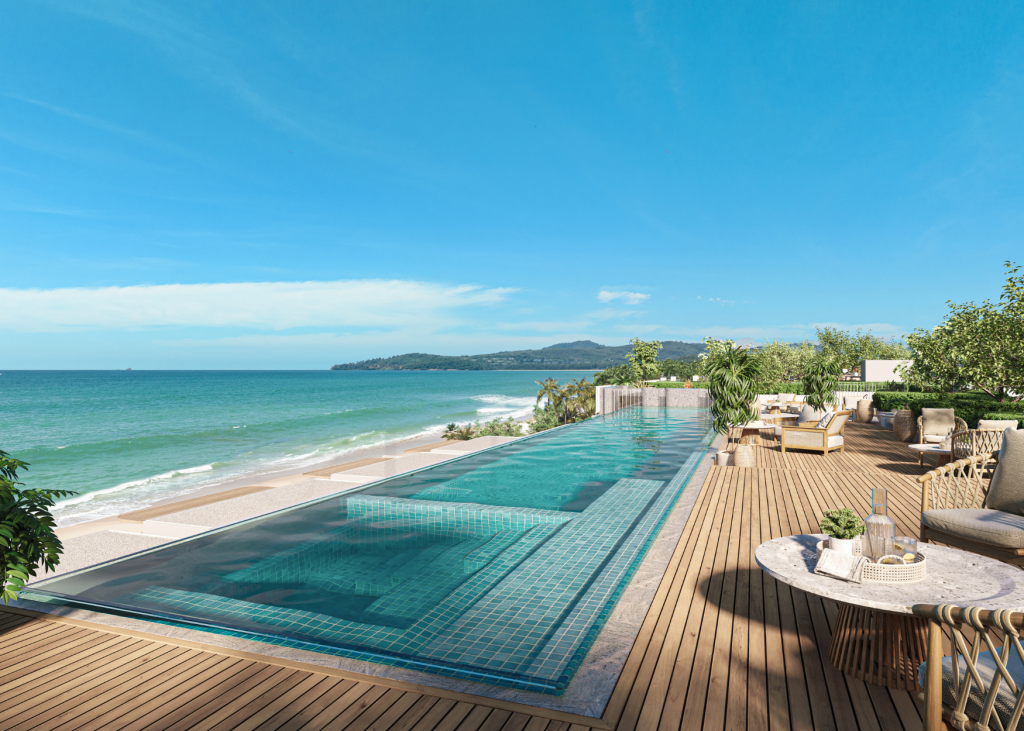
Blvd: Do you see a distinction between the city and resort properties? Do the city hotels have their
own flavour, or are they infused with the resort brand you started with?
Ho: In the 1990s, about three or four years after we started, there was a big debate – we had fewer than 10 hotels at the time, but we owned them. We were known for the Banyan Trees in Bintan, in Phuket, in Maldives. And then in 1997, this huge tower hotel in Bangkok came up, and there was a big debate within the company as to how schizophrenic we could be. But I maintained that we needed Banyan Tree not to become so narrow that it was only a resort brand. In the cities, people want us to be skyscrapers; they want us to have a rooftop bar and restaurant like Vertigo; they want us to have a beautiful spa. So we are moving urban Banyan Trees to become really more like urban resorts. It would never be a pure 100% business hotel, because that’s not where our strength is. So there’s no longer that schizophrenia – we are now one united entity.
Blvd: And of course, you have the residential tower in Bangkok as well. How does the Banyan Tree brand extend or evolve into that space?
Ho: We identified residential very early on as important for our growth. Many other people basically saw it as binary: hotel management companies would say, I have a hotel, and if the developer really wants to have branded residences, fine, I’ll take my royalty and run it, but from a hospitality side, I’m not really interested in it. It’s not seen as an asset. We have taken the view from the other side: that the marketing and management of branded residences, particularly the marketing for short term leases, for holiday homes and so on, can be a substantial part of the business. And that’s why a lot of people who want to do branded residences now come to us. Because they know we’ve got the platforms, we’ve got the mentality, that treats branded residences as an integral part of a whole project.
“We treat brand residences as an integral part of the whole project.”
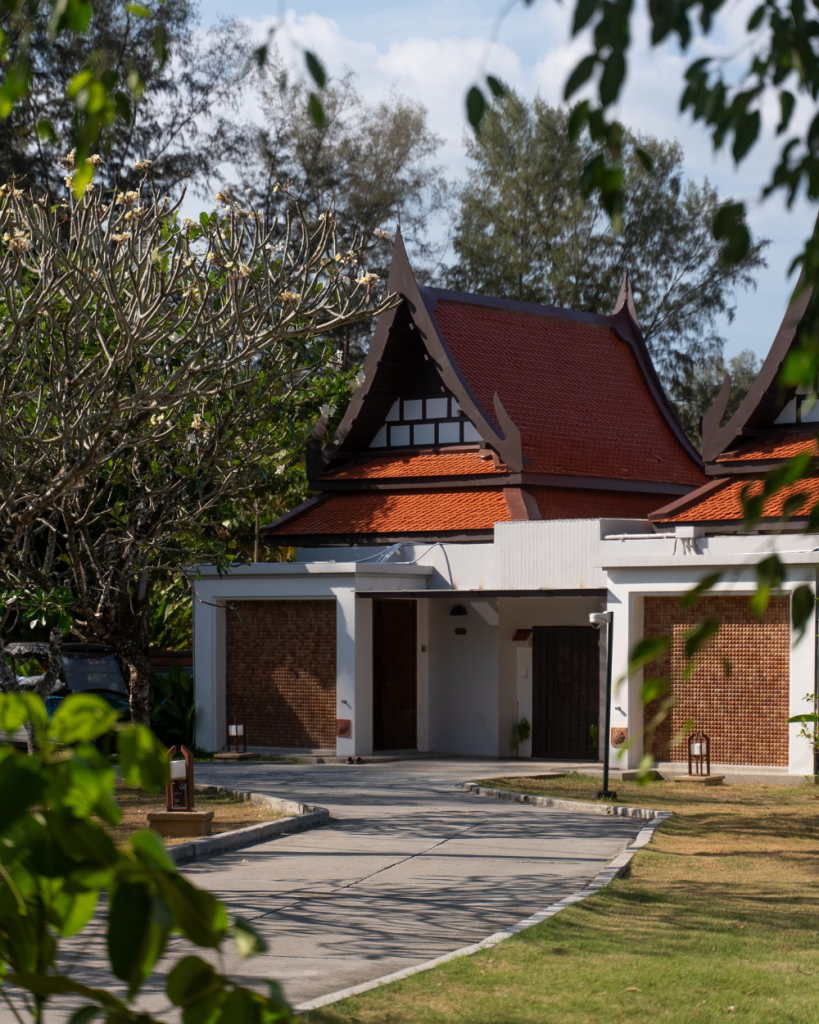
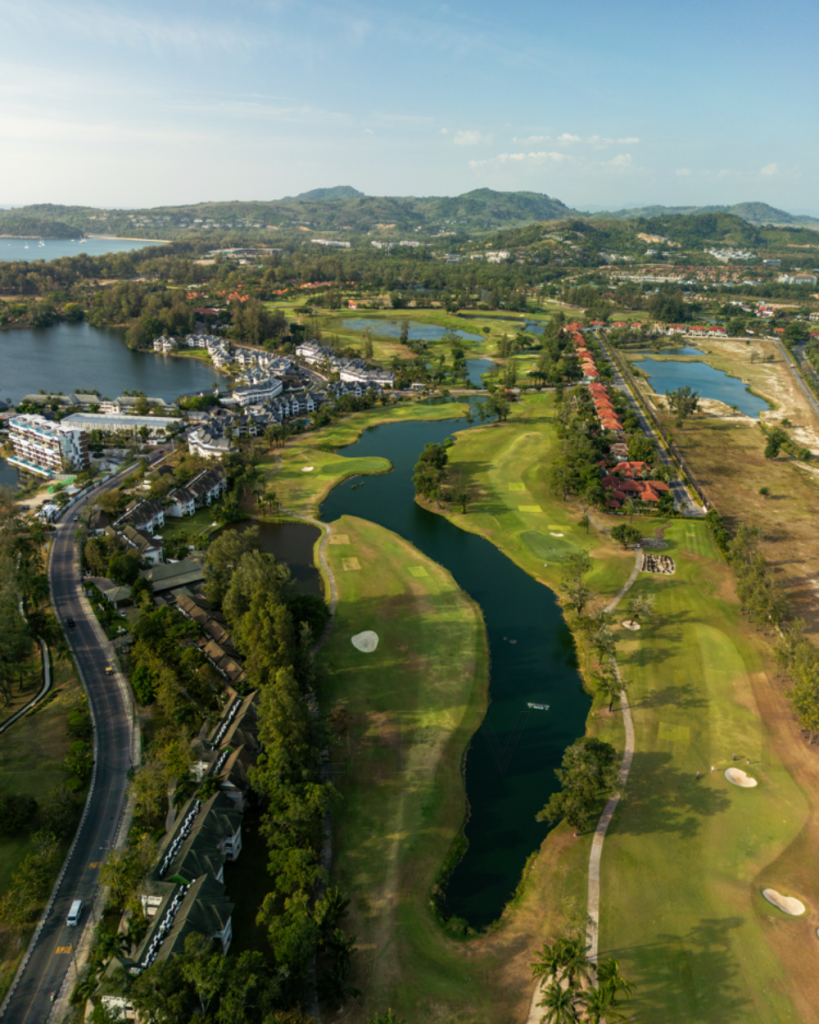
Blvd: You’re in this rare position of having that interplay between hospitality and residential, but also
development. Would you say there are key insights into those areas that have come from the others, that have pushed that innovation?
Ho: Because we’re developers of our own branded residences, one of our insights is being able to see first-hand how the buyers of our residences like their units to be managed and marketed. It used to be that if you wanted to have a hotel manage your residence, you had to give it to the hotel for the whole year, and you were allowed to have maybe 30 days. The blackout dates could be terribly unattractive – all your Christmases, Easters, everything. Now, we can allow you to basically occupy it any time you want, but when you don’t want to occupy it, we’ll manage it for you. And it doesn’t run counter to the hotel’s interests, because they’re not part of hotel inventory. They are marketed as a residential project. So it’s a completely different ballgame and I think we’re ahead of most people in that respect.
Blvd: Where do you see the market for branded residences heading?
Ho: The challenge for us has been, if we run out of villas, how do we do condo projects that are attractive? I think the phenomenon of penthouses is really rising. Penthouses with a rooftop pool and so on. For many people, that is not a bad alternative to a villa. Because a villa does not have a view, and most villas don’t have a massive garden space anyway – unless you’re paying a huge amount. So if you could have this same villa layout, but the pool was on top of your unit, and your living room looks out to a beautiful view, that becomes very popular. So we are finding that luxury penthouses can attract the same price per square foot as luxury villas.
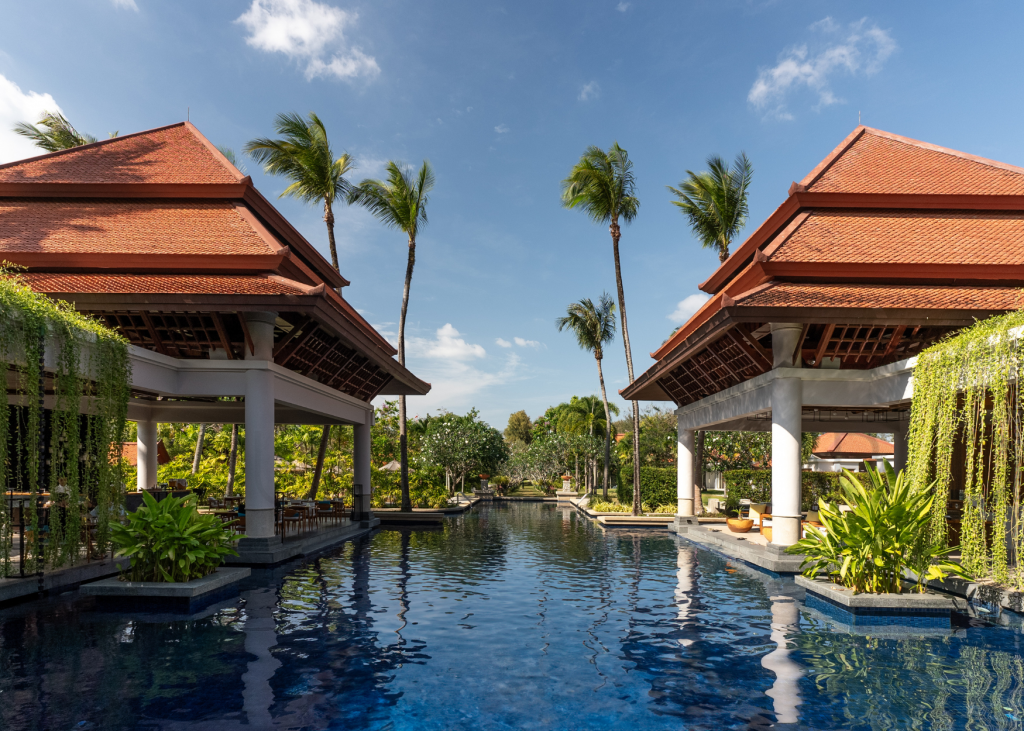
Blvd: You’ve now had guests coming here for 30 years, staying at your hotels, or renting or buying your villas. How have their expectations of a luxury stay in Phuket changed over that time?
Ho: There has been a big increase in families. In the past, you would get European couples, younger and older. Now, with more guests coming from Asia, the Middle East and also Russia, the trend towards family travel and travel with friends has grown. So the demand we usually had in the past would be for two bedroom villas, now it is for three, four and even five bedrooms.
Blvd: What other markets in Asia are you exploring for luxury branded residences? Bali? Japan?
Ho: I really love Bali but I think it has several drawbacks. Besides traffic and all the rest, the government is not perceived as being foreigner friendly with the property and immigration laws.
But as for Japan, I think there’s going to be a boom in property there. It’s a pristine country, with natural resources, cuisine, culture. And the government is foreigner friendly. I have a home in Japan, and go there very often now. And we have five Banyan Trees coming up there, both in ski destinations like Hakuba, and in other places. Japanese property prices are actually cheaper than Singapore – and even to Thai people and so on.
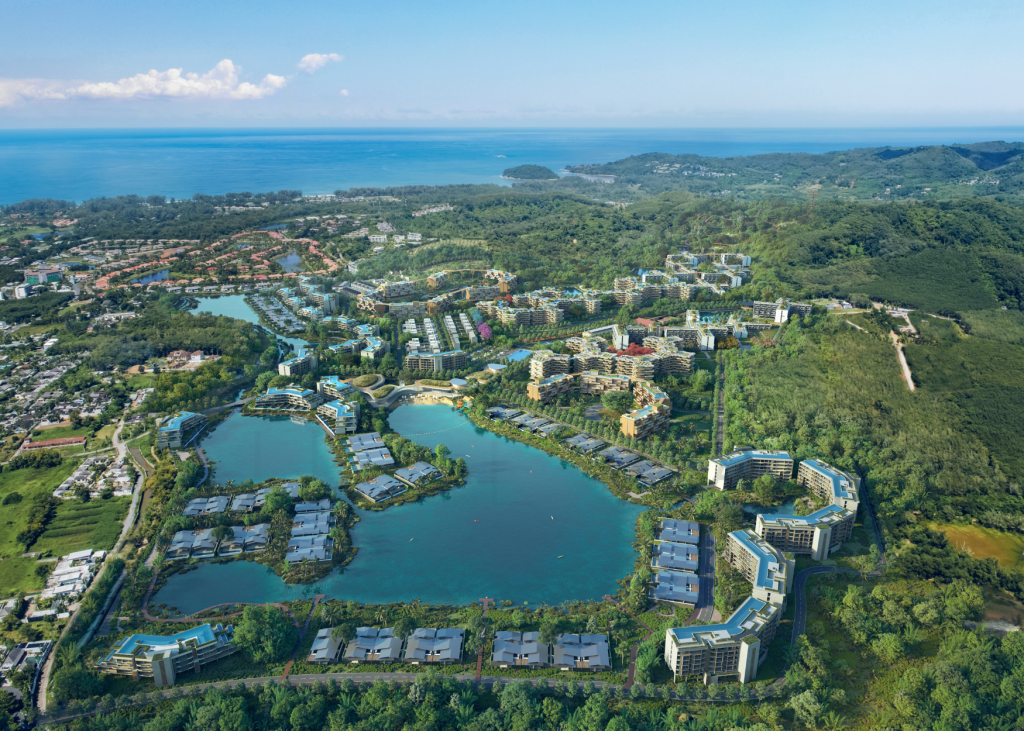
Blvd: And in terms of your role and your interests, what really keeps you going these days? Have you moved out of hospitality and more into development? What’s firing you up?
Ho: We have three pillars: pure hotel management; then we have the hotels that we own, that we build. And we have real estate, which is larger. As part of my whole succession planning, I still keep direct responsibility for owned hotels and the ones that we will develop, because there’s not that many. And property development – although it is among our biggest profit generators right now – it’s relatively straightforward, and the team is relatively small. The most complex part of our business is the hospitality management part, with 100 hotels. We’re located in every region of the world. And that’s where we’ve got the most employees. It’s by far the most complex part of our business, and not necessarily the most profitable, but when you look at effort and reward, and that really needs a lot more energy.
So that part I have pretty much relinquished, except for giving advice to them and some key decisions. But the owned hotels is not that difficult to oversee, and the property development is fun to do. It’s in Phuket, and I spend a lot of my time here. But the hotel management side, with 100 or more hotels and 20 hotels opening every year, I don’t want, and I cannot go there every year for every opening. So my colleagues are ahead of that now.
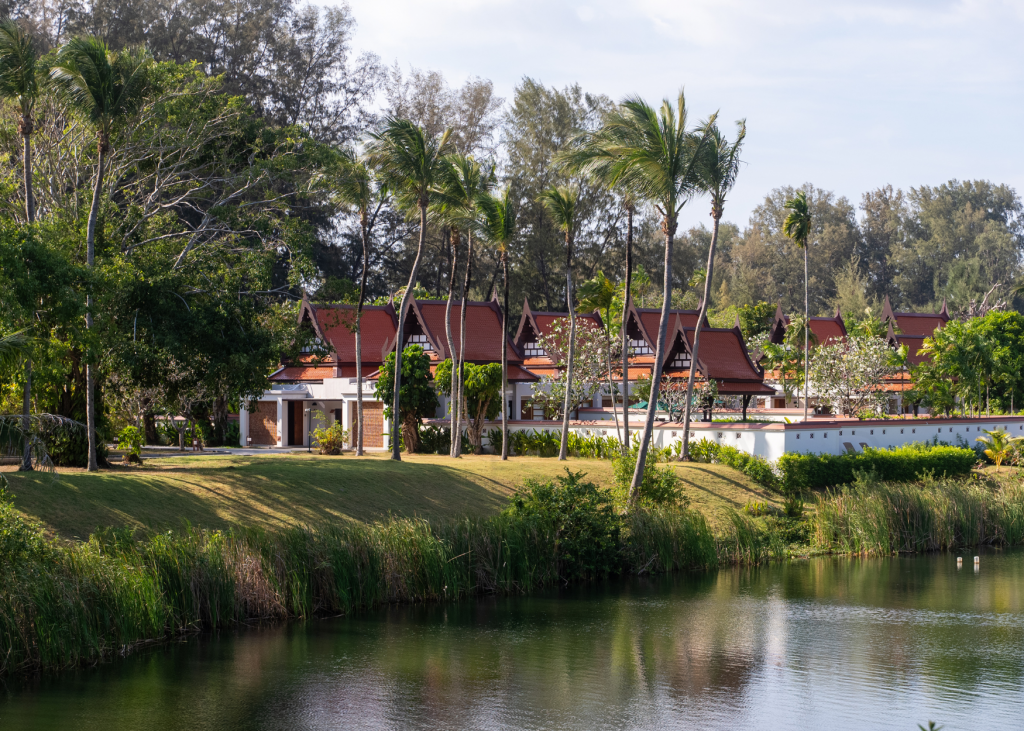
Blvd: From the sounds of things, you still have the passion for a piece of land and its potential for development.
Ho: Yeah, it’s always there. People – owners of hotels – are very surprised that whenever we do hotel management, I would go out there and look at the site, because it’s just in my nature. Whether we own the site or you own the site and you ask me to manage it for you, it’s exciting to look at it and see what the potential is. Most chairmen would just sit there and talk and have coffee.
Blvd: And do you walk the projects here, as they near completion, and terrify your teams?
Ho: Yes, I mean, I have lost two drones and just bought a new one, because I use the drones a lot and look around and so on. And then I take pictures and send them back to the teams. And so I’m a bit of a nuisance to them, but they tolerate me.
Go further with Banyan Tree Group:
- Lagoon Pool Villas by Banyan Tree Grand Residences, Phuket
- Oceanfront Villas by Banyan Tree Grand Residences, Phuket
